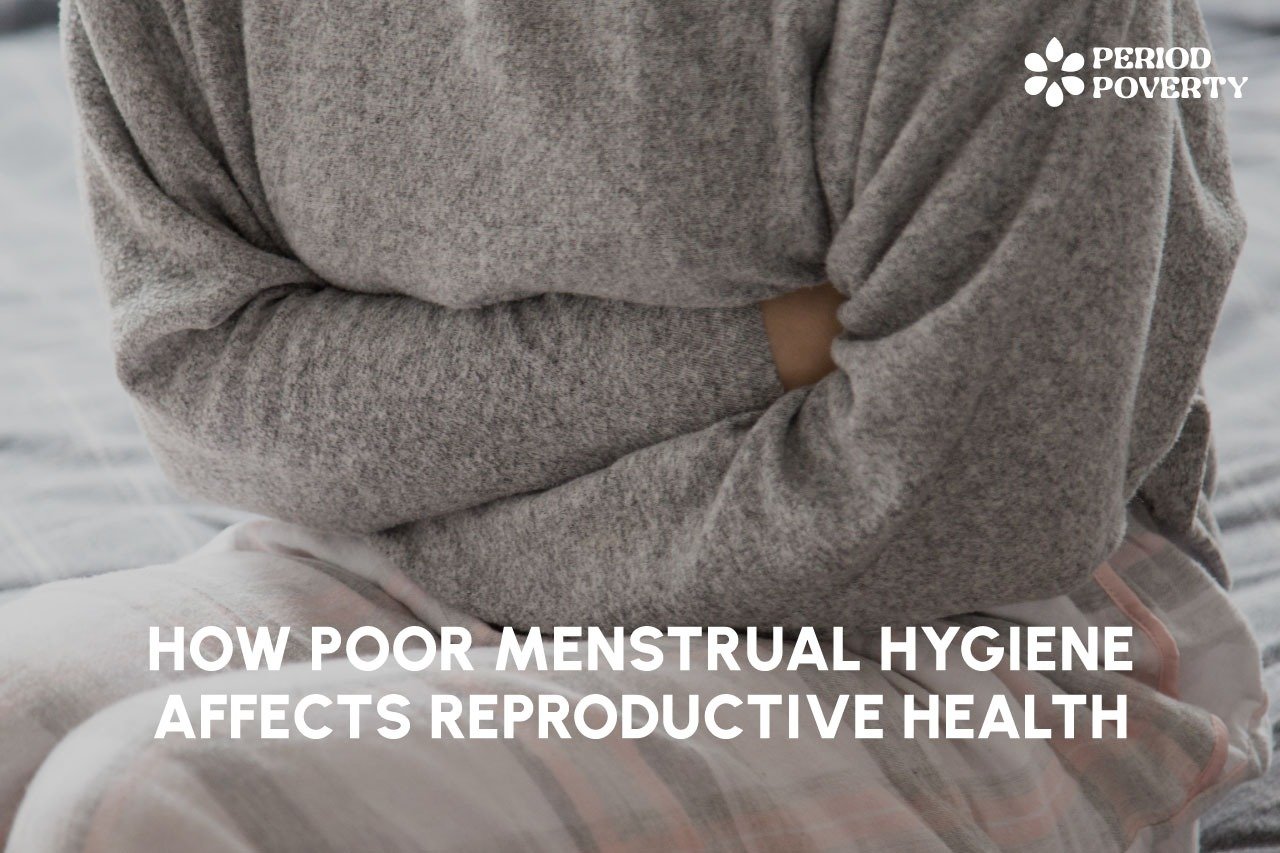Experiencing the first period marks a pivotal milestone in a young girl’s journey toward womanhood. It’s a moment that signifies not only physical changes but also the onset of a new phase in life. This transformation can be both exciting and bewildering, as it brings forth a surge of emotions and a flurry of questions. The mix of curiosity, anxiety, and uncertainty is entirely normal, as it reflects the enormity of the change taking place within the body and mind. As girls grapple with understanding these changes and navigating the uncharted waters of menstruation, the role of a mother becomes irreplaceable. In the midst of this whirlwind of emotions, a mother’s presence offers a steady anchor, a source of comfort, and a wellspring of guidance.
The journey into womanhood is rife with queries that can leave young girls seeking answers far and wide. What is happening to my body? Why do I feel this way? How do I manage these new experiences? These questions are not only natural but also serve as a bridge for daughters to connect with their mothers. Sharing the news of the first period with one’s mother holds profound significance beyond mere biological changes. It’s a pivotal opportunity for a daughter to bridge the gap between her evolving self and the nurturing wisdom of her mother. The significance of this moment extends beyond practical advice; it signifies the transmission of intergenerational understanding and empathy. Through this candid conversation, mothers have the chance to pass down their own experiences, lessons, and coping strategies, nurturing a bond that is forged through shared experiences and a deep sense of maternal care.
Choosing the Right Time and Place:
When broaching sensitive topics like your first period, the timing of the conversation holds a significant role in its success. Opt for a time when both you and your mother can be fully present without distractions or time constraints. Seek moments when you can engage in a relaxed and unhurried dialogue, allowing the conversation to unfold naturally. Avoid discussing this topic during stressful times, such as when rushing to school or work, as this can hinder a productive and meaningful exchange.
Equally important is the choice of setting. Find a quiet and comfortable environment that fosters an atmosphere of openness and intimacy. This could be during a peaceful walk in the park, a cozy evening at home, or even during a casual drive. The absence of external disturbances can help you both focus on the conversation at hand, making it easier to express your thoughts and feelings. An uninterrupted environment also allows your mother to give her undivided attention, ensuring that the discussion is respectful, thoughtful, and free from unnecessary pressures.
Casual settings provide excellent opportunities for candid conversations. Consider utilizing moments when you’re sharing quality time together, like cooking dinner or relaxing after a movie. By integrating the discussion into a natural flow of conversation, you can lessen any potential tension and make it feel like a regular part of your ongoing communication. In such settings, the tone remains light and non-confrontational, enabling you to address the topic with ease. Remember, the right time and place can set the tone for a positive and reassuring conversation that lays the foundation for understanding and support.
Reflecting on Your Feelings:
Before opening up to your mother about your first period, take some time to acknowledge and reflect on your own emotions surrounding this significant milestone. Understand that it’s entirely normal to experience a range of feelings, including excitement, nervousness, curiosity, and even a hint of anxiety. This moment marks a significant transition, and it’s okay to have mixed emotions about it.
As you contemplate your feelings, remember that your mother likely went through a similar experience when she had her first period. Reflect on the fact that she, too, navigated the uncertainties and changes that come with this transition. Realizing this shared experience can create a bridge of empathy between you and your mother. She will likely understand your emotions and concerns more deeply than you might expect, given her own past experiences.
Creating an Empathetic Conversation:
When you eventually discuss your first period with your mother, strive to create an environment of empathy and understanding. Express your emotions openly, and encourage her to share her own memories and insights from her early experiences. This exchange can not only help you feel more connected but also offer valuable guidance and reassurance.
By acknowledging your emotions, recognizing your mother’s likely empathy, and fostering a conversation based on mutual understanding, you’ll be paving the way for a meaningful dialogue that strengthens your bond and provides valuable support during this period of change.
Opening the Conversation:
Bringing up the topic of your first period might make you feel a bit nervous, but remember that your mother is there to support you. To ease into the discussion, consider the following steps:
1. Acknowledge Your Nervousness: It’s okay to admit that you’re a little nervous about discussing this topic. Sharing your feelings of nervousness can actually help create an atmosphere of openness and vulnerability.
2. Start with a Casual Remark: To set a comfortable tone, begin with a casual remark or question related to the topic. This can help transition into a more serious conversation smoothly. For instance, you could say something like, “Hey, Mom, you know, I’ve been learning about some new things lately, and I was wondering if we could talk about them.”
3. Express Your Desire to Share: Let your mother know that you want to share something important with her. This prefaces the conversation with a sense of significance, showing that you value her input and support.
By taking these steps, you’re allowing the conversation to start in a way that feels less intimidating and more like a natural progression of your relationship. Remember, your mother cares about you and wants to be there for you during important moments like this.
Sharing Your Experience:
Once you’ve opened the conversation, the next step is to share your personal experience regarding the changes you’ve noticed in your body. Here’s how you can approach it:
1. Mentioning Changes: Begin by mentioning that you’ve started noticing some changes in your body recently. This sets the stage for discussing the more specific details of your experience.
2. Describing Physical Symptoms: Share any physical symptoms you’ve experienced, such as abdominal discomfort, breast tenderness, or mood swings. Be honest and open about how these symptoms have made you feel.
3. Expressing Curiosities: Let your mother know if you have any concerns, questions, or curiosities about these changes. This could include topics like the regularity of your periods, how long they might last, or how to manage any discomfort you’re feeling.
4. Emphasizing Openness: Stress the importance of being open about your experience and any uncertainties you have. Let her know that you value her guidance and support during this time of transition.
By sharing these details, you’re not only keeping your mother informed about your journey but also creating an environment where she can provide valuable information and reassurance. Remember, open communication is key to understanding and navigating this new phase in your life together.
Expressing Your Needs:
As you continue the conversation about your first period, it’s essential to express your needs to your mother. This helps ensure that you both are on the same page regarding the kind of support and information you require. Here’s how you can go about it:
1. Articulate Support: Let your mother know that you value her support and guidance during this time. Express your appreciation for her being there to share in this experience with you.
2. Specify Information Needed: Share with her the specific information you would find helpful. This could include details about menstrual hygiene products, how to track your cycle, or how to manage discomfort. Being specific about your needs helps your mother provide relevant advice.
3. Creating a Safe Space: Emphasize that you want to create a safe and open space for ongoing conversations about menstruation. Let her know that you feel comfortable discussing your experiences, questions, and concerns with her.
4. Encouraging Ongoing Communication: Make it clear that you would like the lines of communication to remain open in the future. This creates a foundation for discussing not only the practical aspects of menstruation but also any emotional or psychological changes you might experience.
As you navigate this experience, remember that you’re not alone. Every young girl faces this juncture, and your willingness to approach the conversation positively can inspire others to do the same. By sharing your own experience and highlighting the benefits of such open dialogues, you contribute to breaking the silence and stigma surrounding menstruation. Continuing the dialogue about your first period with your mother presents an opportunity to normalize the topic, reducing stigma and fostering openness. You can achieve this by emphasizing menstruation as a natural process and encouraging open communication within the family. Sharing positive experiences and challenging societal stigma through open conversations can create a more informed and understanding community. By normalizing discussions, you cultivate an environment where conversations about menstruation are met with empathy, nurturing a positive impact on relationships and broader conversations.






